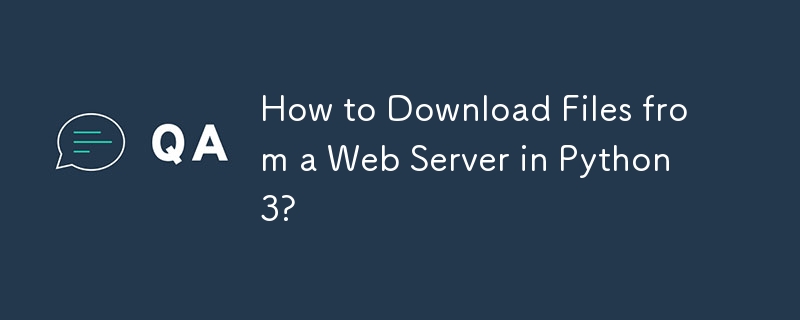Home >Backend Development >Python Tutorial >How to Download Files from a Web Server in Python 3?
How to Download Files from a Web Server in Python 3?
- Linda HamiltonOriginal
- 2024-11-04 01:23:02813browse

How to Download a File from a Web Server in Python 3
Introduction
Downloading files from a web server is a common task in many programming projects. Python provides several libraries to simplify this process, making it easy to download files from specified URLs.
Downloading a File with urlretrieve
<code class="python">import urllib.request url = "http://example.com/file.jar" urllib.request.urlretrieve(url, "file.jar")</code>
This code uses the urlretrieve function to download the file from url and save it locally as file.jar.
Downloading a File for Streaming
<code class="python">import urllib.request
import shutil
url = "http://example.com/file.jar"
with urllib.request.urlopen(url) as response, open("file.jar", "wb") as out_file:
shutil.copyfileobj(response, out_file)</code>
This code opens a file-like object using the urlopen function and copies the content to a local file using shutil.copyfileobj. This method allows for streaming of large files without storing the entire file in memory.
Handling Compressed Files
<code class="python">import urllib.request
import gzip
url = "http://example.com/file.gz"
with urllib.request.urlopen(url) as response:
with gzip.GzipFile(fileobj=response) as uncompressed:
data = uncompressed.read()</code>
This code opens a compressed file as a file-like object using the gzip.GzipFile class and reads the decompressed data into a variable.
The above is the detailed content of How to Download Files from a Web Server in Python 3?. For more information, please follow other related articles on the PHP Chinese website!

